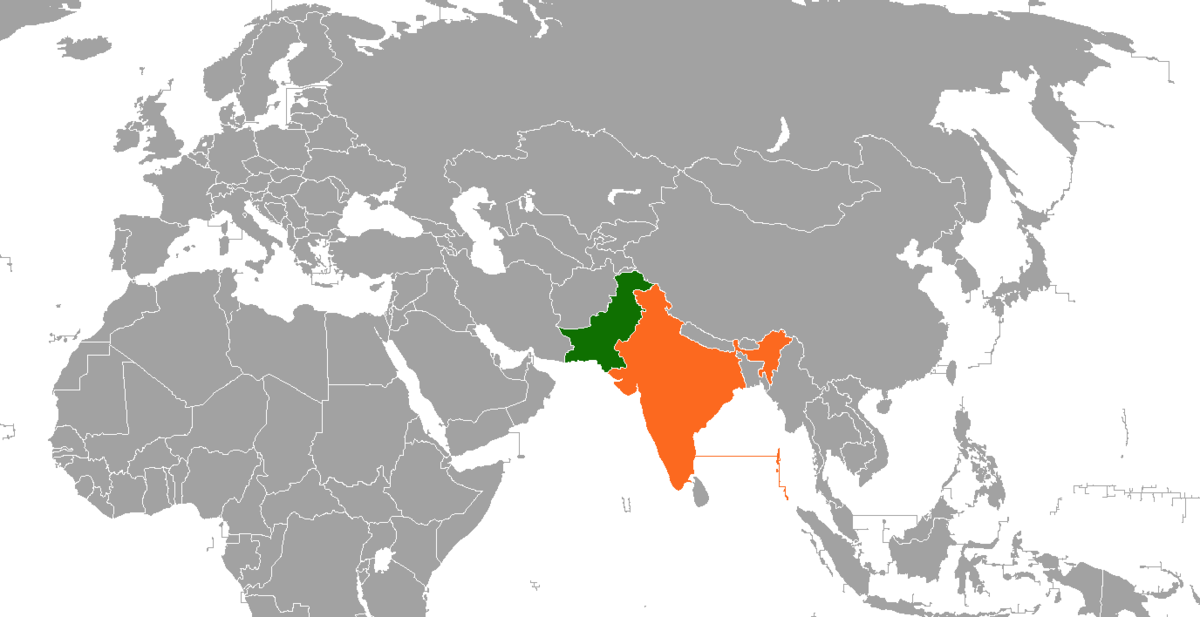The title of the theme has been slightly altered. I misread it as “Can India and Pakistan become friends?” However, that was changed to “Can they ever be friends?” It demonstrates how difficult the task at hand is. If we manage to pull it off, it will truly be a historic achievement. I’d like to take the title a step further. Instead of asking, “Can we ever become friends?” ask, “Must we or can we remain foes?”
Can we continue to be adversaries? Because, unfortunately and tragically, it is this negative term that has determined or described the quality of our political relations over the past 50 years since we became independent countries.
Today, we have become nuclear-weapon neighbours, and are yet to develop the technologically or scientifically informed political cultures that will allow us to live as nuclear-weapon neighbours in some safety. So if we pose the question. “Can we afford to remain foes?”, the nature of the question becomes an imperative rather than one of curiosity.
The obvious answer is contained in the question itself. We simply can’t afford to remain foes. We can’t continue in the present mode if we owe ·anything to the coming generations. To a certain extent, rivalry, yes, differences, yes, but you know the kind of intense adversity that has described our relationship. And since we cannot afford to remain foes, adversaries, enemies, we have got to do something about it. We simply have to find a way to become friends and since it is a survival imperative, the answer has to be yes. We will become friends because the will to survive must prevail over every other instinct.
Of course, the case for Pakistan’s friendship with India, as well as India’s friendship with Pakistan, is much broader. It is more than just a matter of survival. But hopefully the imperative shall get us going in a manner like never before. In the past, wars were tragic but affordable. They are no longer affordable today, given our ability to inflict large-scale damage on one another if the worst happens, and you know that even the most remote possibility is unacceptable.
Even so, there is a huge degree of skepticism and indeed cynicism that informs the relationship. We find it expressed in statements that are issued on both sides of the border every day. The case for friendship, the case for survival is obvious. But will it inform our policies? Will we develop that momentum? Will we begin to move forward? I believe that a major paradigm shift has taken place in the recent months.
There are so many dates one can refer to. You can refer to September 11; you can refer to October 1; you can refer to December 13. You can also refer to January 6 and 7 when the two leaders (Prime Minister A.B. Vajpayee and President Pervez Musharraf) met in Kathmandu. Or, being the Pakistani high commissioner I may be somewhat partial, but I think the truly seminal development has been January 12, when the President of Pakistan addressed the nation and came up with a comprehensive programme against extremism of every kind, be it religious, ethnic or political, within Pakistan or from any territory that is within its jurisdiction.











More Stories
Praveen Catches YouTuber Wife With Lover, Gets Killed
MP: प्रेम विवाह पर उपसरपंच पर पंचायत ने ₹1.3 लाख जुर्माना लगाया
बिहार के महाकांड: 10 मिनट में मौत के घाट उतारे गए थे 23 लोग, लाशों के बीच मरने का नाटक कर कई ने बचाई थी जान